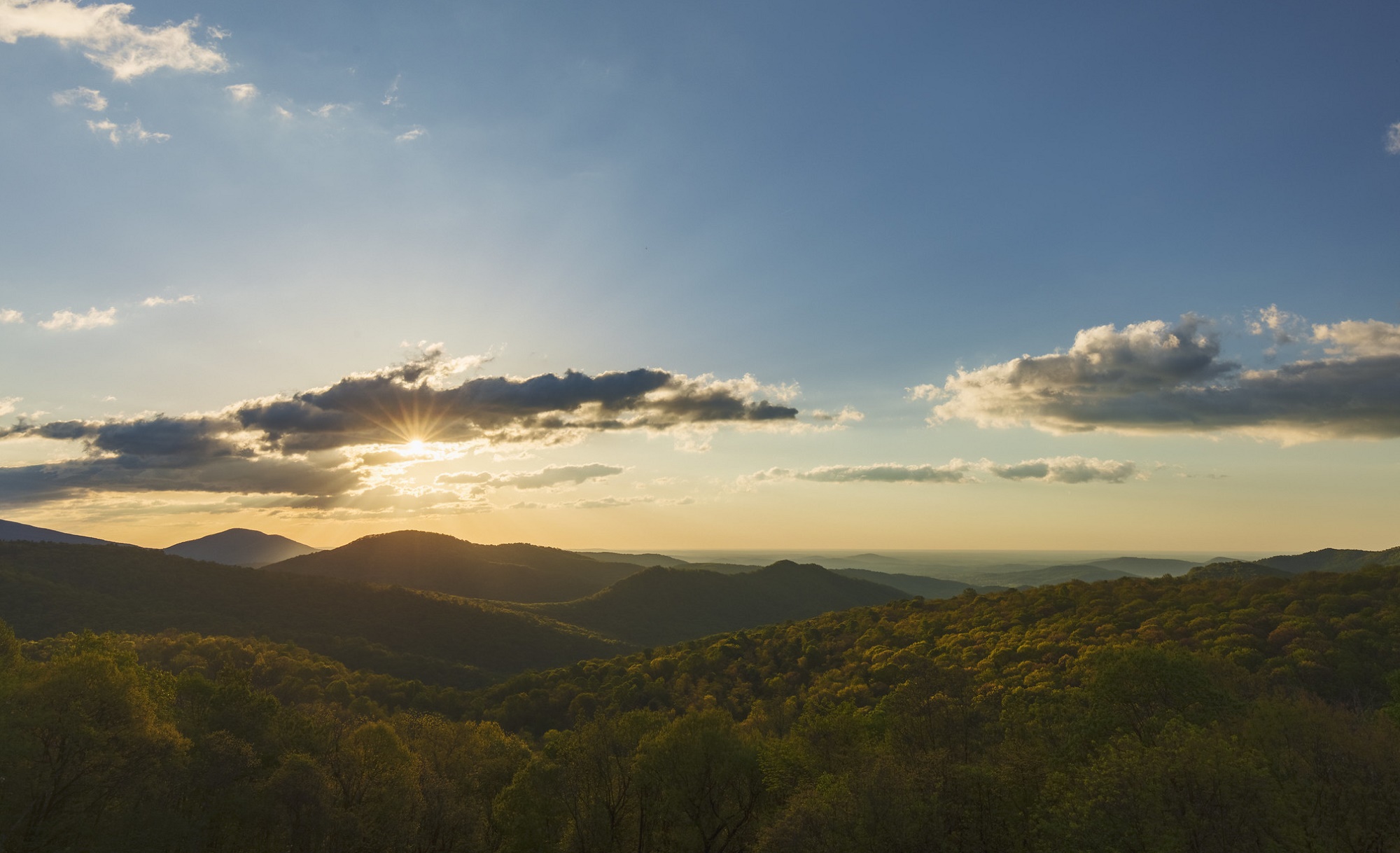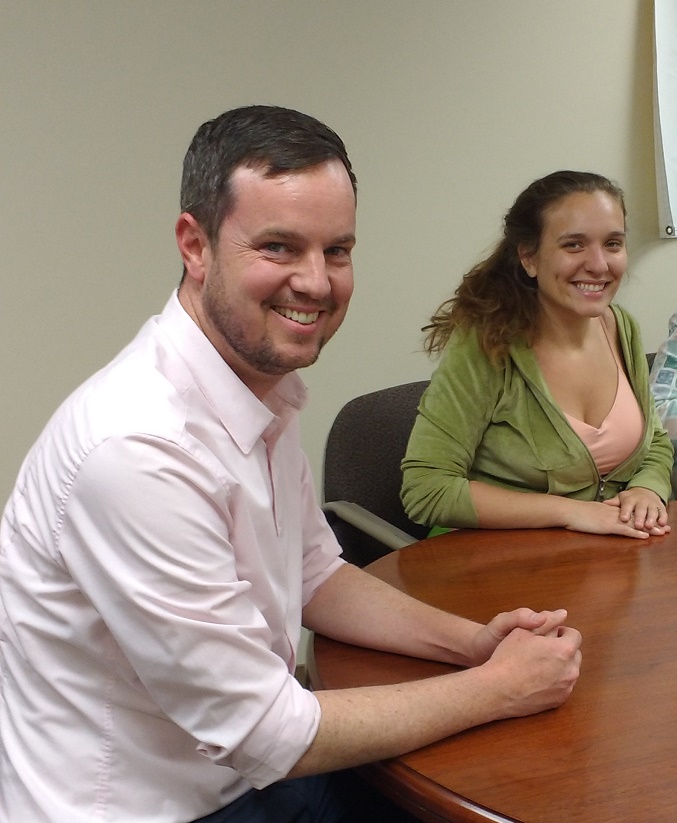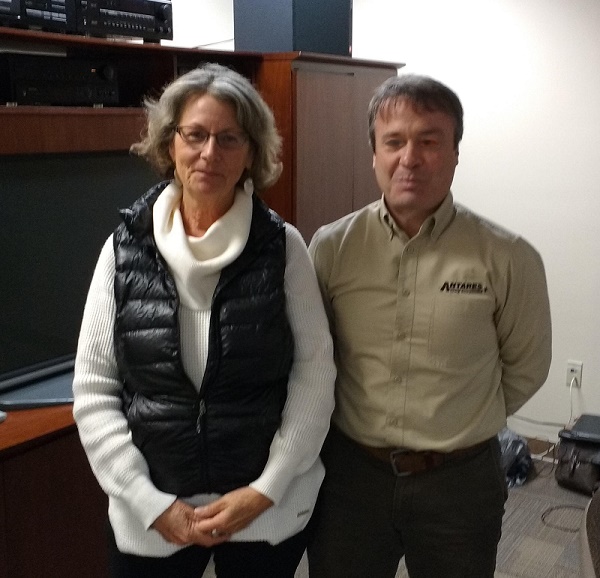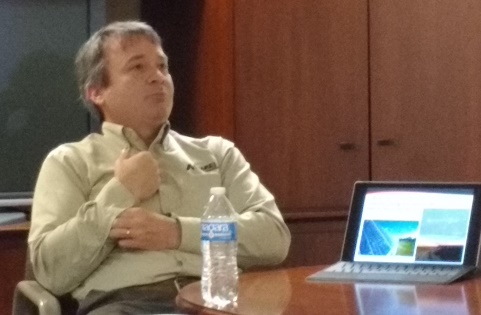Coalition Partner of the Month: Doug Graber Neufeld
September 18, 2018
 The Coalition Committee brought Doug Neufeld, Director of the Center for Sustainable Climate Solutions, headquartered at Eastern Mennonite University to the steering committee this month. Founded with a generous gift from a member, CSCS is a “collaborative initiative of Eastern Mennonite University, Goshen College and Mennonite Central Committee to lead Anabaptist efforts to respond to the challenges of climate change,”as described on their website here. In this position barely more than a year, he is bringing energy, vision and far-reaching programs to life, focusing on four broad areas of development:
The Coalition Committee brought Doug Neufeld, Director of the Center for Sustainable Climate Solutions, headquartered at Eastern Mennonite University to the steering committee this month. Founded with a generous gift from a member, CSCS is a “collaborative initiative of Eastern Mennonite University, Goshen College and Mennonite Central Committee to lead Anabaptist efforts to respond to the challenges of climate change,”as described on their website here. In this position barely more than a year, he is bringing energy, vision and far-reaching programs to life, focusing on four broad areas of development:
- Student engagement
- Pastoral leadership development
- Explorations in innovative solutions
- Leveraging global connections with climate-burdened individuals who can speak to the effects.
In student engagement, they now have three students enrolled in “climate futures” fellowships. They propose their own issues and methodologies. The three are all EMU graduates. They propose year-long podcasts and photojournalism to distribute their discoveries. The three are working in areas of Appalachia with an environmental justice focus on stories of climate change and extractive industries. There are also undergraduate interns in several roles: One has been working in the Mennonite Central Committee office in Washington DC on an election resource for Mennonite congregations, another is working on faith outreach building networks between Mennonite institutions in Indiana.
Pastoral leadership development in this area focuses on development of a curriculum for pastors and other congregational leaders on climate change, especially theological aspects, not climate science.
Innovative solutions includes economic, technical, sociological focus, as well as theological.
The first event on global connections comes soon, with “Global South Voices” speaking at 28 venues on the east coast. The first event in this area is scheduled for September 30 at Harrisonburg Mennonite Church, 6-9pm, with speakers from Zimbabwe, El Salvador, and Nepal with stories of climate change and its effects. It will be repeated at EMU from 10-11am October 3 in Lehman Auditorium.
The Center is developing an extensive email list, has done a broad survey of thousands of Mennonites, gathering opinions on climate change, and has a newsletter published in print and online at the website twice/year. Daniel Bellarose who came to a CAAV steering committee about a year ago is responsible for the newsletter. Doug sees the general mission beginning simply to get people talking about climate change, and discovering the barriers to those conversations, as well as finding “trusted voices”, those who can speak in ways that go to the heart of the problem and are remembered.
We wish them all God speed in this difficult task.
– Anne Nielsen, for the CAAV Coalition-Building Committee, September 2018
Most months, Sept – May, the CAAV Coalition-Building Committee invites a community member or group to present to the CAAV steering committee about projects with which they are involved. We are grateful to be working with so many other groups and individuals passionate about creating a more resilient, healthy and just world.







 stakeholders, education, research, and policy creation.
stakeholders, education, research, and policy creation.
 The Coalition Committee brought Doug Neufeld, Director of the Center for Sustainable Climate Solutions, headquartered at Eastern Mennonite University to the steering committee this month. Founded with a generous gift from a member, CSCS is a “collaborative initiative of Eastern Mennonite University, Goshen College and Mennonite Central Committee to lead Anabaptist efforts to respond to the challenges of climate change,”as described on their website
The Coalition Committee brought Doug Neufeld, Director of the Center for Sustainable Climate Solutions, headquartered at Eastern Mennonite University to the steering committee this month. Founded with a generous gift from a member, CSCS is a “collaborative initiative of Eastern Mennonite University, Goshen College and Mennonite Central Committee to lead Anabaptist efforts to respond to the challenges of climate change,”as described on their website  We invited a long-time friend to tell the Climate Action Alliance of the Valley’s steering committee about progress in a very important and interesting volunteer effort with Renew Rocktown: Climate Action Advocacy for Harrisonburg, VA.
We invited a long-time friend to tell the Climate Action Alliance of the Valley’s steering committee about progress in a very important and interesting volunteer effort with Renew Rocktown: Climate Action Advocacy for Harrisonburg, VA.
 Tom came racing up to WVPT’s community meeting room to meet with the CAAV steering committee on his bike, just back from Dulles by air, via the Megabus. He had been in the Dominican Republic, helping with a project on food forests and tilapia farming. He was joining us to report on progress with the Sustainability Action Plan for the City of Harrisonburg, through the Environmental Performance Standards Advisory Committee (EPSAC).
Tom came racing up to WVPT’s community meeting room to meet with the CAAV steering committee on his bike, just back from Dulles by air, via the Megabus. He had been in the Dominican Republic, helping with a project on food forests and tilapia farming. He was joining us to report on progress with the Sustainability Action Plan for the City of Harrisonburg, through the Environmental Performance Standards Advisory Committee (EPSAC).